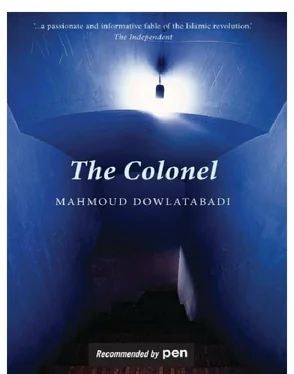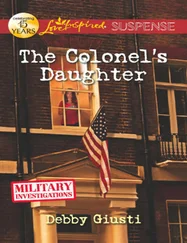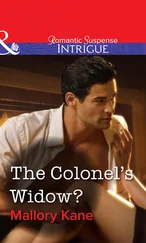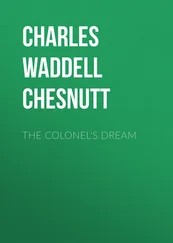I feel my voice is changing, which means that my transformation has now started. Out of all fairness, I should not be obliged to spend what is left of my life in the disgrace and pointless humiliation of madness and ridicule.
He also wanted to say that, if he decided to cut out his tongue before he died, nobody should be surprised, or think that he had gone mad. No, I shall be punishing myself for what I was made to say over the loudspeakers at the cemetery, things which I could hear with my own ears.
Even so, he clung doggedly to the belief that it had not been his voice, but someone else’s, speaking through his mouth. Still, there was a risk that that voice might speak from his mouth again and become second nature to him. Before his final metamorphosis took place, he was determined to ward it off, so long as his mind was still clear and he had control of his wits. Before he died, he wanted to have a talk with Amir and hear from his son that he had not been a bad father to his children. He wanted Amir, as the closest person to him, to bear witness that he had willingly sacrificed his children to this country, even though they had ultimately fallen victim to a vile conspiracy.
He wanted to impress upon Amir that this devastating tragedy should not lead people to question or mock his children’s own genuine readiness for self-sacrifice. For the only reason they had entered the game and had honestly and laudably risked their necks was because they believed that their lives were inextricably bound up with their country and their people. This was what made them different from those evil bastards who were still alive and kicking today… This is what I wanted to say to Amir, so that those people who won’t let history be written down should not think that we come into the world as donkeys and leave it as asses. But it’s all too late. Amir can’t understand what I’m saying and I don’t even recognize his voice, or even his language. And I should have explained to him that my killing his mother was not a crime, but just a natural reaction on my part. I had to kill her, so I did it. I killed my humiliation. Anyway, if regrets could change anything, I would regret killing my wife, even though Amir knows — and might even bear witness to it — that I should not regret what I did.
Amir shook his head, affected by this. He could see from the colonel’s face that he had formed a sad judgement of him, but this feeling was not so much from the fact that he felt sorry for his father as from the way his father was changing. He appeared to be fading away and vanishing before him.
the colonel thought this was rubbish. He expected his son to have the intelligence to see, written on his face, his determination to fade away. Because a decision, even if that decision will result in certain self-annihilation, in itself counts as a sign of the will to live. Just because the colonel had decided to fade away, that was no reason for Amir to treat him as if he had already gone.
But what can I say, when he doesn’t even understand me? What was the colonel supposed to do? Pen and paper! He got pen and paper and began to put down what he had been unable to say to Amir. A will, after all, had to be on paper. That was why it was called a written will and testament. He was astonished to see Amir also take up pen and paper and begin writing. They were both busy writing now, but they did not look at each other’s papers. They were both sure that what they were writing was for the writer’s eyes only. The content of both wills was clear: ‘Death.’
the colonel wanted to tell Amir that he intended to die and that, before he did so, he wished to give his son the benefit of some of his long experience of life. But what was it that Amir wanted to commit to paper? Not another nightmare, he hoped.
When he had put the last full-stop to his piece, the colonel looked up at Amir and saw that Amir had also finished writing and was looking up at his father. the colonel puts his sheet of paper in front of his son. Amir does the same. They pick up each other’s letters and carefully study the writing. When they finish reading they stare at one another for an unusually long time, as if trying to get to know each other and place each other again. They seem like strangers in each other’s eyes. Finally, they accept that they are two figures of death sitting opposite each other…
The tea had grown cold in the glasses. Matters were drawing to a close.
Taking care not to let the blanket slip from his shoulders, the colonel stood up. It occurred to him that he had long since been meaning to tuck Masoud’s photograph into the frame of The Colonel’s portrait, next to Parvaneh and Mohammad-Taqi. He found the key to the suitcase, knelt down beside the bed, pulled out the suitcase, opened it, found Kuchik’s photograph, got up and placed it where he had thought a thousand times about putting it. Then he sat down again.
Amir had also stood up and was making ready to go out. He was in no hurry, but he did not dawdle either. As he was doing up his raincoat, he fished a scrap of photograph out of a notebook in his side pocket. He hesitated, then gave the colonel, who was now staring into his cold glass of tea, a look to seek his permission, before lining up a picture of himself as a boy on the mantelpiece, beneath the shiny black boots of The Colonel, right next to the photographs of his brothers and sister. Then, as though he were bidding farewell to himself, he began muttering under his breath: “Finally… at last…” and slipped quietly out of the house.
the colonel sat and stared for a long time at the half-closed door, trying to imagine Amir in the form of a grey coffin being carried out of the room. He was struggling to control his emotions. But at the same time, he felt a great sense of relief at Amir’s departure. In his guts, he felt that Amir had consciously lifted the burden of his own death off his back. But a hidden feeling of fatherly love, which there is no reason to hide , took hold of the colonel and forced him to the window where, to stop himself worrying about his son, he stood by the cracked pane and looked out into the courtyard and at the sky, as ever filled with rain. The first thing his eyes lit on was the pick and shovel propped against the wall by the gate. He had imagined that Amir would pick them up and take them with him. But what completely flummoxed him was the fact that the bust of Amir Kabir, which had been standing on the platform over the pond, had vanished. At first he could not believe that Amir Kabir had been removed, but then, as he peered through the finely falling rain, he saw that both leaves of the courtyard gate had been wrenched from their hinges and the lintel had been smashed. This convinced him that Amir had been taken away. He could not stand it, and went out on to the verandah, careless of the blanket flapping round his naked body. He caught sight of a distraught Amir emerging from the cellar and looking frantically round the yard for the bust. Lifting an arm out from under his blanket, he pointed silently at the gap in the wall where the gate had been. Amir, as if he had just noticed the wreck of the gateway, rushed out into the alley, ignoring the pick and shovel.
the colonel stood there, bemused, with his arm still pointing at the gate. All thoughts of death were behind him now. The rain kept on coming down, echoing silently in the colonel’s head, stirring no memories in his mind, not even a faint image of a sunset after the rain on the rusty tin roof. And then he saw Khezr Javid coming in through the gate, dragging someone behind him in handcuffs. Khezr stepped into the yard and paused by the pond for a moment, as if making up his mind. Then he turned back, as if to measure up his companion.
The sight so unnerved the colonel that he woke from his daydream. Who had Khezr Javid arrested? The man was looking nervously around. Khezr Javid clicked the handcuffs round the single, withered branch of the orange tree to secure his prisoner and then went down to the basement, presumably to search it. the colonel blinked, and blinked again, as if he could not believe what he was seeing. But no, everything was as he had seen it: handcuffed to the tree in the rain by the pond was a hunchbacked creature, all huddled up and wrapped in an old army blanket. The only parts of him that were visible were his tethered arm and his extraordinary eyes, one like Masoud’s and the other like Abdullah Kolahi’s, whom he had last seen with a packet of sugar plums in the living room. On closer inspection now, he saw that Abdullah’s strange eyes divided his half-burned and mutilated face into two distinct halves, like two mismatched panes of glass. These extraordinary glassy eyes were darting anxiously around the yard. the colonel could still remember Abdullah’s words:
Читать дальше












